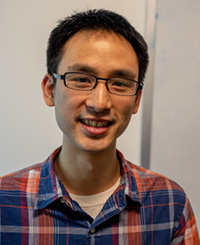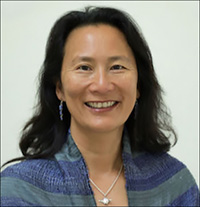Campus News
CITRIS UCSC funds new pandemic-related research projects
The campus seed funding program is providing $40K grants for three new projects to address the challenges of COVID-19.





CITRIS and the Banatao Institute at UC Santa Cruz is providing seed funding for three innovative projects to address the challenges caused by the current COVID-19 pandemic.
The projects, selected for CITRIS UCSC’s second annual Campus Seed Funding Program, range from educational technology for remote learning to robotic testing platforms and a senior-friendly online telepresence system.
“We were excited to see the diverse and creative range of projects this year, from work addressing educational challenges to health and community issues,” said CITRIS UCSC Campus Director J.J. Garcia-Luna-Acevez, distinguished professor of computer science and engineering. “The three finalists chosen by the review committee all hold great promise to help us deal with the new reality this global pandemic has brought and prepare more effectively for any similar future crises.”
The CITRIS UCSC Campus Seed Funding program provides funding up to $40,000 for individual projects that use information technology to solve a significant social challenge.
Remote learning
Experiential, project-based courses face special challenges with the shift toward remote learning during the pandemic. Both mentorship and collaboration become significantly harder in a remote setting, explained David Lee, assistant professor of computational media in the Baskin School of Engineering. Lee’s project addresses this challenge through the use of digitally-supported organizational structures for scaffolding experiential learning.
“The idea is to organize learning after the workplace, with a project goal for the course decomposed into a hierarchy of small experiential roles representing smaller scopes of work,” Lee said. “In this project, we aim to build on a proof-of-concept to deliver a full course and to develop generalizable principles and patterns for creating a micro-role-based curriculum.”
Robotic testing platform
COVID-19 testing in the United States has run into a number of bottlenecks, and a shortage of high-throughput automated machines that can perform hundreds of tests at once is now rapidly emerging. Ali Yanik, assistant professor of electrical and computer engineering, and Rebecca DuBois, associate professor of biomolecular engineering, are working to develop a low-cost, scalable, open-source robotics platform for high-throughput testing.
Automated testing machines are highly sophisticated, difficult to manufacture, and expensive. Open-source liquid handling robots are more affordable, but cannot readily replace the more sophisticated high-throughput machines, Yanik explained. “Molecular assays require rigorous extraction and intricate enzymatic processes that are far too complicated to perform using low-cost open-source robotics,” he said.
Yanik’s lab has developed a novel assay technology that enables ultrasensitive viral antigen detection using immunoassay kinetics. The researchers aim to merge this assay with low-cost open-source robotics to demonstrate a proof-of-concept high-throughput scalable platform for COVID-19 testing. “We have successfully manufactured recombinant SARS-CoV-2 antigens and monoclonal antibodies against them, and we have all the necessary resources to complete the proof-of-concept part of this project through CITRIS funding,” DuBois said.
Equitable health technologies
Shelter-in-place orders during the pandemic have deepened social isolation for many seniors, who already faced difficulties in accessing food and health care as well as maintaining social ties. Sri Kurniawan, professor and chair of computational media, and Nancy Chen, professor of anthropology, will investigate the use of health technologies to enhance social interactions for elderly members within essential-worker communities while creating new career opportunities for minority youths.
“We plan to collaborate with Santa Cruz County non-profit organizations to determine guidelines for telemedicine technologies to assist seniors and identify the most pressing technological barriers,” Kurniawan said.
The researchers aim to develop a senior-friendly multiplatform online telepresence system that facilitates intergenerational communication within the essential-worker communities of Pajaro Valley (currently a medical desert). The system will enable online and remote physical health assistance, tutorials for seniors to take full advantage of online services, and social interactions to alleviate social isolation.
The Center of Information Technology Research in the Interest of Society (CITRIS) is a multi-campus initiative focused on research and emerging technologies. Established in 2001, CITRIS and the Banatao Institute leverages the interdisciplinary research strengths of UC Santa Cruz, Berkeley, Davis and Merced to advance the University of California’s mission. The institute was created to shorten the pipeline between world-class laboratory research and the development of impact applications, platforms, companies, and new industries. Together with many public and private partners, the institute is shaping the future of technology in ways that cross traditional boundaries.